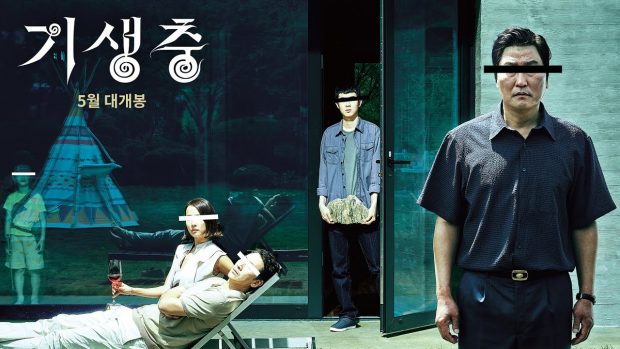싱가포르 기자가 본 봉준호의 ‘기생충’···아시아 청년들에게 어떤 교훈?

[아시아엔=아이반 림 아시아기자협회 제2대 회장, 전 싱가포르 <스트레이트타임스> 기자] 봉준호 감독이 제92회 아카데미 시상식에서 각본상, 국제영화상, 감독상에 이어 작품상까지 수상한 소식은 엄청난 기쁨을 안겨다 주었다.
봉준호 감독의 <기생충>에 등장하는 두 가족-김씨네와 박씨네-이야기는 다른 세상 속에서 살아가는 사람들의 모습을 적나라하게 보여준다. 4인가족으로 이뤄진 김씨네는 가난한 동네의 반지하집에서 살아가지만 박씨네는 넓은 정원이 딸린 호화로운 대저택에서 살아간다.
한국사회의 분열과 대립은 영화 속 김씨네가 각종 벌레들과 아무렇지 않게 살아가는 모습처럼 당연한 현상으로 자리잡고 있다. 김씨네가 창문 근처에서 소변을 보는 낯선 사람에게 제대로 된 저항조차 할 수 없지만, 끊어진 인터넷 연결에 대해서 불평하는 모습은 첨단기술의 시대를 살고 있는 우리에게 시사하는 바가 많다.
한편 박씨네는 운전기사와 집사를 거느리며 풍족한 삶을 이어간다. 실제 삶 속에서 이 두 가족이 마주칠 가능성은 없지만 봉준호 감독에 의해 이 같은 질서는 영화를 통해 뒤바뀐다. 따라서 영화는 두 다른 세상이 충돌할 때 어떤 일들이 일어나는지 면밀히 보여준다.
김씨네와 박씨네의 충돌은 영어를 할 줄 아는 김씨네 장남 기우가 영어 개인교사로 박씨네 집에 출입하는 것으로부터 시작된다. 기호는 박씨네 딸에게 영어를 가르치며 박씨네를 골려먹고자 여러 아이디어를 생각해낸다.
아시아의 현 상황과 기생충의 시나리오를 비교해볼 때, 빈번히 계속되는 빈부격차의 그림이 선명하게 그려진다. 지금 유엔은 경제발전을 토대로 하여 새천년 개발 목표 중 하나인 불평등 완화를 해결하고자 한다.
봉준호 감독은 영화 속에서 기우의 아버지가 자신의 아들을 박씨네 딸에게 장가들기를 원하는 아버지상으로 그려내는데, 이는 아시아의 유서 깊은 가족문화의 한 모습이다. 물론 현실에서는 어느 정도 수준이 맞는 가족간 결혼이 성사되겠지만 말이다.
박씨네는 김씨네의 ‘체취’를 견뎌내지 못한다. 이는 두 가족이 사회적으로 완전히 다른 종(種)임을 시사한다. 결국 김씨네의 고압적인 태도와 폭언은 비극을 낳게 된다.
영화 초반에 비춰졌던 야심적이고 영악한 기우는 시간이 갈수록 박씨네가 살고 있는 집을 얻는 것은 5세대 이후에나 가능하다는 현실을 분명히 깨달았을 것이다. 영화 속에서 기우가 친구로부터 받았던 상징적인 ‘수석’은 아마 완전한 평등으로 가기까지 감내해야 할 울퉁불퉁한 길을 의미하는 것은 아닐까.
아니면 봉준호 감독은 아시아의 청년들에게 기우처럼 편법을 쓰는 대신, 교육을 통해 신분상승을 얻어내라고 말하고 있는지도 모른다. <번역 송재걸 기자>
아래는 영어 원문
Bong Joon-ho’s historic feats in winning Oscars for Best Original Screenplay, Best Director and Best Picture for his Korean-language socio-drama Parasite has given surrealistically a feel of paradise.
A tale of two families ? the Kims and the Parks. They are living in worlds apart. A family of four, the Kims stay in a semi-basement in an impoverished neighbourhood while the Parks’ dwelling is a lush mansion with a spacious garden compound.
The social divide, a facet of Korean society, is a normal state of affairs, as reflected in the way the Kims tolerated the parasitic bugs and the fumigation fumes engulfing their home. As well, they could do nothing about the stranger who urinated outside. To be sure they did complained a lot when their internet access was cut off because the bill was unpaid, itself a .mirror of their meagre means in the modernistic hi-tech world.
Such a contrast to the wealthy Parks with chauffeur and house-maid at their beck and call. Nothing would have happened as the Kims and Parks go about their own business in this human. drama except that director Bong Joon-ho, in his social conscience decided it must not remain static. He contrived, as it were, to let their worlds collide and their fates change ? for better or worst.
The agent of change is the Kim’s scion, the English-speaking Ki-ho, who enters the Park’s universe posing as a language tutor to their daughter. As the story unfolds, Ki-ho begins to entertain ideas of keeping up with Parks.
Superimposed on the larger Asia scenario, this is the perpetual catching up with the rich class by the poor. The United Nations speak in terms of development economics to achieve the Millennium Development Goals of reducing poverty and inequality.
In the family drama, Director Bong allows Kim Ho’s father to dream of an easy route to riches if his tutor son marries the Park daughter. A time-honoured practice among Asian tycoons; albeit works usually between compatible families.
Not so in this case. The Parks could not stand the different ‘smell’ of the Kims members. The Park patriarch has also to put his Kim counterpart in place when the latter became too familiar. The personal offence and acrimony lead to tragedy.
To be sure, the filial and ambitious Ki-ho is not merely think of the easy way to riches but realises that it would take him as long as five generations to be able to own a house like the Parks. Therein lies Director Bong’s moral of his story: It will be a long-haul effort to level the playing field.
Or perhaps, his message is for the Ki-hos of Asia to move up the ranks via the educational ladder, not by parasitic steps. (Written by Ivan Lim Sin Chin)





